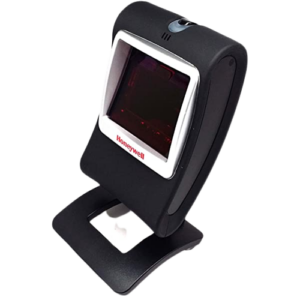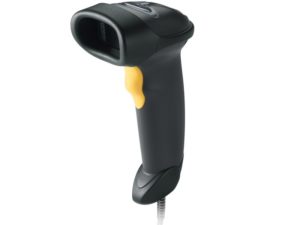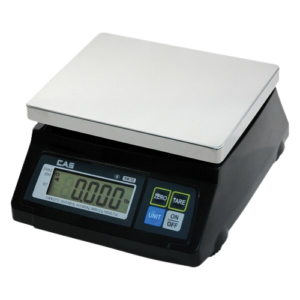
by Grace Barone
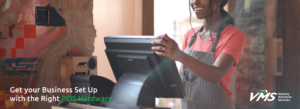
If you're a small business owner you may find yourself in a position where you need more equipment than just a point-of-sale system. Many businesses require additional POS hardware. Its important to have a solid business plan in place. As well as a clear vision of how you want your small business to function.
Researching POS hardware is something business owners should prioritize. You might need certain equipment or you may need none. In either scenario, if you haven't done research you may find yourself with things you don't need or without the things you do need.
The term "hardware" might sound intimidating, at least it did for me when I started researching this topic. Most people have an idea of what POS hardware is, they just don't realize it. Barcode scanners at clothing stores and weight scales at grocery stores all constitute as POS hardware. Not so complicated, right?
We've created a list of POS hardware to give business owners more of an understanding on the different POS hardware that is available. If you already have a POS system, some of the equipment on the list may not be compatible with your system. Be sure to ask your provider before purchasing any extra POS hardware.
POS Systems
Before talking about the different hardware available, you should have an understanding on what POS system you have. There are a few different kinds of POS systems available to businesses. The ones listed below are the main categories. If you'd like to learn more about the different kinds for devices within these categories, here's another blog that goes into more detail.
Traditional:
- The classic POS systems are software-based and installed on a local computer or server. Larger companies with numerous locations or lots of transactions usually employ them. Though, some small businesses may use them. For a small business with one location, this system is not ideal. The data is stored statically and exclusively inside the business. If something happens to the computer or server that the data is stored on, it would be lost forever. Inventory, menu, sales reports and more is all stored in one spot making it a risky choice for small businesses.
Cloud-Based:
- Systems that are housed in the cloud and are accessed online are known as cloud-based POS systems. They are typically subscription-based and can be utilized on a range of devices, including tablets and smartphones. This is a great option for business owners because data can be accessed anywhere, not just inside the business. This is convenient for owners who maybe aren't at the business everyday. Having a cloud based POS system ensures that data will not be lost if an accident happens.
Mobile:
- Mobile point-of-sale (POS) systems are frequently used by companies that operate in a variety of places, such as food trucks or contractors. These systems are created to be used on the go and work on Wi-Fi or LTE connection. Some businesses may choose to use them as their main POS system even if they don't plan on being on the go, since they are so convenient. If you'd like to learn more about mobile POS systems check out our other blog here.
App-Based:
- These POS systems allow businesses to download a variety of apps onto their systems. The apps allow for ultra customization, there are a ton of apps for all different kinds of businesses. The idea behind app based POS systems is to maximize efficiency since they have a system that is catered to them. Different businesses have different needs so one standard POS system may not work for every business. App based systems are usually cloud based as well.
Different POS Hardware
Now that you have more of an understanding on the different POS systems, lets get into all hardware you can incorporate.
Cash Drawers: 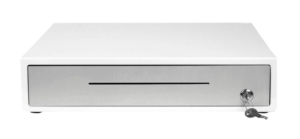
This is one of the more common pieces of POS hardware. Almost every business has a cash drawer, unless they are cashless. POS systems and cash drawers are often connected through a wired connection, such as a USB or serial cable. If you already have a cash drawer you should consider implementing a cash discount program.
Barcode Scanners:
This is another common piece of POS hardware. If your business has UPCs (Universal Product Code) then having a barcode scanner is a required piece of equipment. There are two different kinds of barcode scanners, stationed and handheld. Stationed scanners are typically seen at places like retail and grocery stores. The hand held scanners are the ones that resemble a gun. Barcode scanners are either connected wirelessly or have a wired connection.
Kitchen Printer: 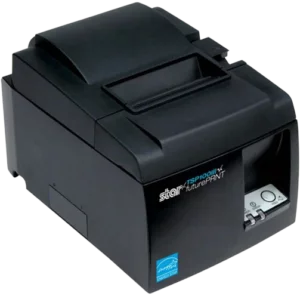
If you run a restaurant having a kitchen printer will maximize the efficiency of your business. When an order is placed on your POS system, the ticket prints directly to your kitchen. The kitchen is usually located away from the dining room so having the ability to send orders to the kitchen via the printer is incredibly convenient. This also ensures that orders are being made in the order that they were submitted. Kitchen printers are usually connected wirelessly since they are located away from the POS system, though some can be connected with a wire.
Label Printer: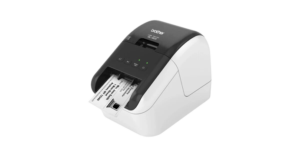
Label printers are used in many different scenarios. A great example of this is a place like Starbucks. You place your order with the cashier and a label is made with your name and order details. Its then put on your cup. This makes assembly line operations easy. The label printer looks like a receipt printer but has special paper that are essentially stickers. You need to make sure you have the right kind of printer and paper for them to work properly. Typically these printers require a wired connection.
Weight Scale:
Deli's and grocery stores usually have weight scales at their business. These can be used in any business that prices items based on their weight. Coffee shops that sell beans, candy shops and even farming businesses can benefit from a weight scale. Connecting the weight scale can be a little more tricky than other pieces of hardware. Some weight scales require a special wired connection to your POS system. This may be a problem if you don't have the scale set up right next to your POS system. To remedy this, you can connect a label maker to the scale. You can then program the scale to print a barcode out. When the item is weighed, a label will come out with the price and barcode that can be scanned at the register.
Kiosk: 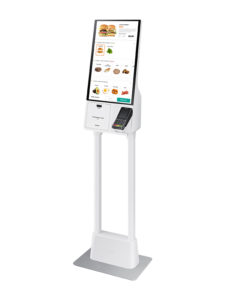
The addition of a kiosk can be a great way to maximize efficiency within your business. A kiosk is a self serve POS system where customers can place their orders and check out without the need for an employee present. Maybe you're short staffed or have extremely busy hours, having a kiosk will relieve some pressure. If you want to learn more about the Clover Kiosk, click here. Kiosks are connected to your main POS system wirelessly. The great thing about a kiosk is that you can connect it to your kitchen printer along with your main POS system. This means orders placed on the kiosk are sent to where they need to go in the same fashion as your POS system.
Getting your Business Set up with the Right POS Hardware
VMS offers cloud-based, mobile, and app-based POS systems. We also offer all of the hardware mentioned. To get your business set up with a POS system and all the different compatible POS hardware, fill out the form below or visit us at getvms.com

